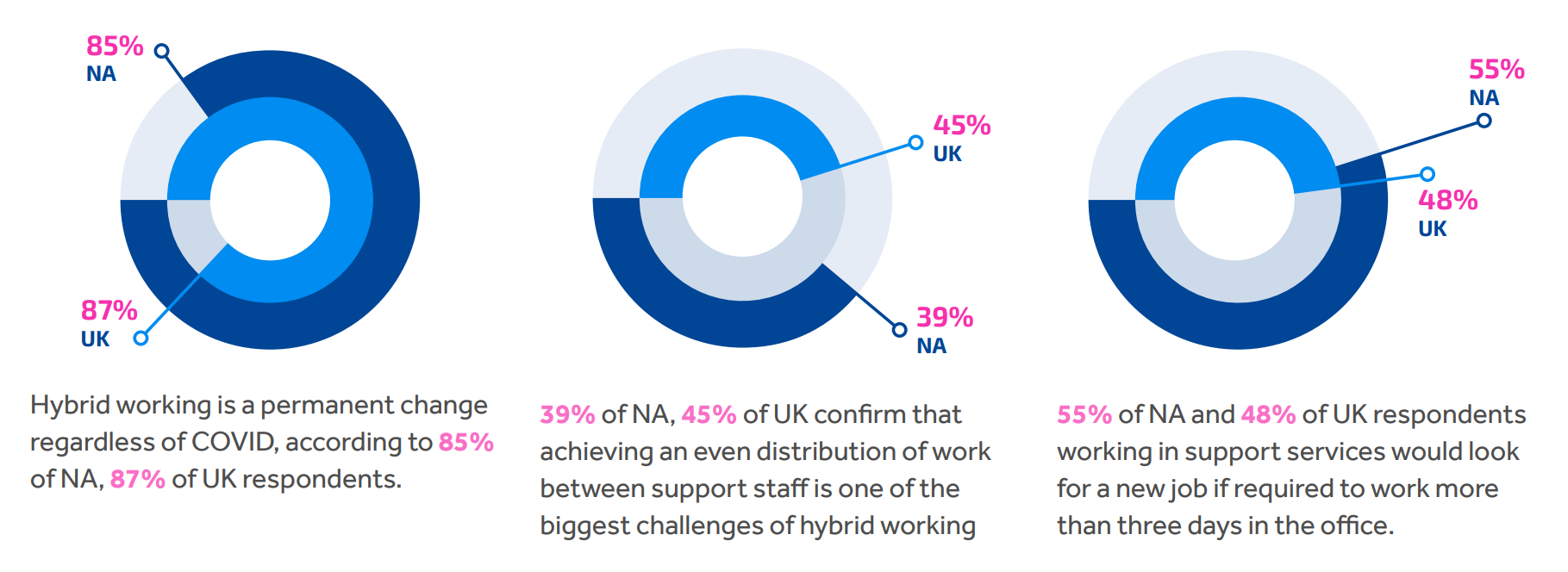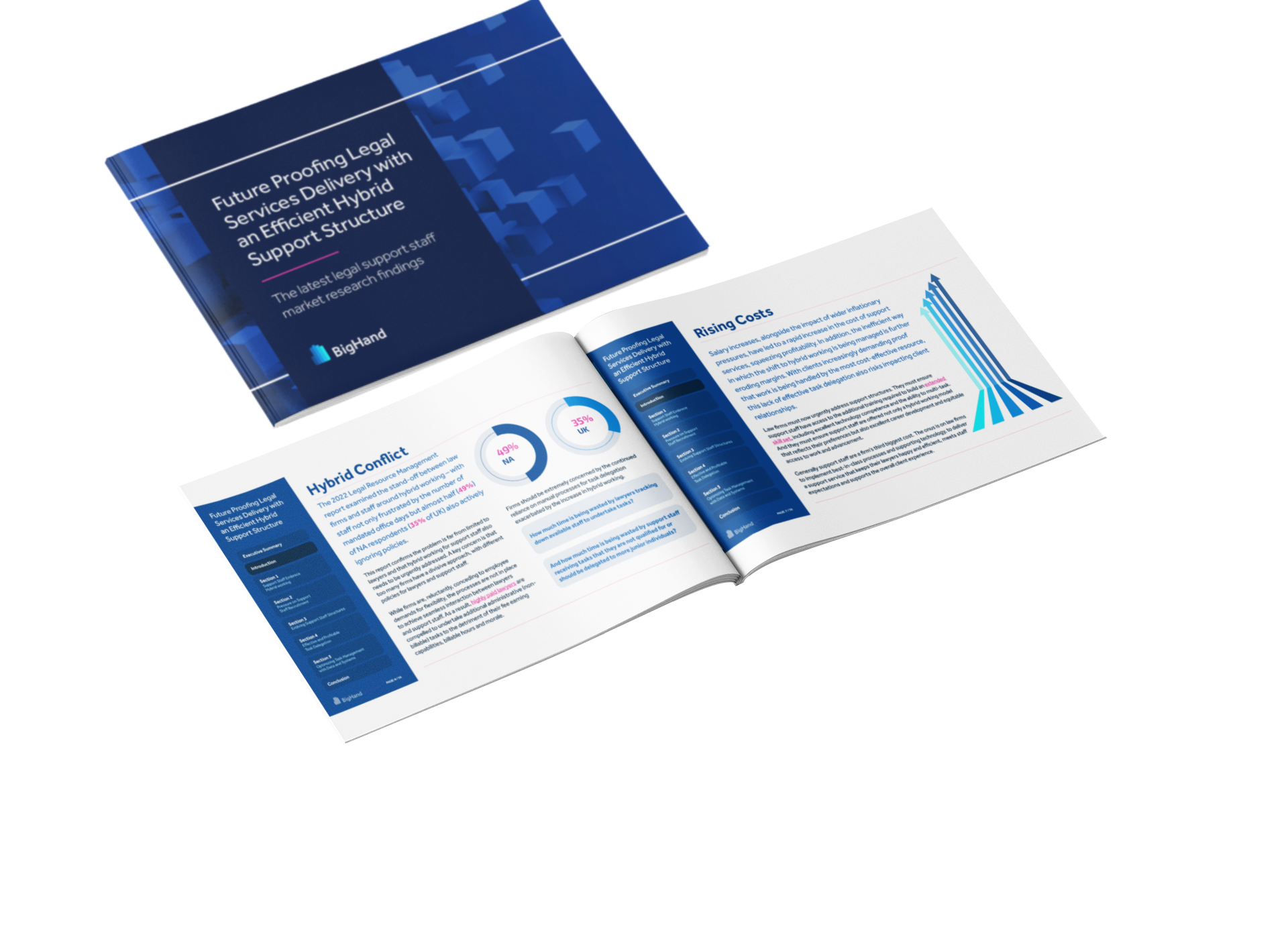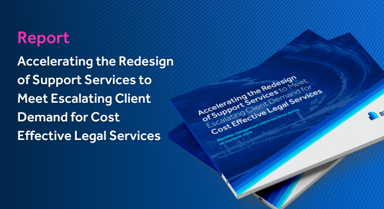The shift to hybrid working is ubiquitous but, so far, the transition from office based to hybrid has been far from smooth, especially for those in support roles. While law firms have evolved their support services in recent years, few firms had considered the addition of hybrid and flexible working. The pandemic completely changed that situation. Support staff as well as lawyers have embraced the hybrid experience: 85% of NA, 87% of UK respondents say hybrid working is a permanent change regardless of COVID.
There is still conflict between staff expectations and firms’ desire to impose control by limiting the number of days staff can work away from the office. Half of respondents (49% of NA, 52% of UK) report that their firm has mandated the number of days they must be in the office – yet almost half (49%) of NA respondents (35% of UK) admit to not complying.
This is not just a morale issue or a need for management to retain control: staff want more flexibility and are not afraid to change jobs to experience the right hybrid model. While over two thirds (67%) of NA and three quarters (77%) of UK respondents report support staff working away from the office two to three days per week, it’s not enough.
The majority will actively look for a more flexible working environment if law firms fail to improve the hybrid working model quickly: 55% of NA and 48% of UK respondents working in support services would look for a new job if required to work more than three days in the office. If staff expectations are not addressed as a priority the risk of losing talent, including support expertise, will increase.

A number of trends are dovetailing to create an unprecedented challenge. Skilled staff are in demand. Experienced, tenured support staff are highly valuable. Employment costs are rising rapidly. Law firms should be genuinely focused to ensure their hybrid or remote working model is market competitive at a minimum. Having access to data that demonstrates staff productivity levels regardless of physical location will be key to supporting flexible working policies.
Inconsistent Policies
This research also suggests firms are failing to recognize the importance of creating a hybrid working policy for support staff as well as lawyers: 65% of NA, 58% of UK respondents say their firm has different hybrid working policies for lawyers/partners and support staff. With different policies in place, any office-based interaction between lawyers and support staff has become even less predictable. Have firms put in place clear, well-defined processes to ensure support work is still dealt with optimally and service delivery is not impaired? Clearly not, with 39% of NA, 37% of UK reporting that support staff are being utilized less. Lawyers are undertaking ever more administrative work, and as a result, working longer hours or billing less. This is hardly a trend that ambitious young lawyers or law firm clients will be happy about.
While this is an improvement over last year’s results, which revealed 61% of NA, 50% of UK support staff had been utilized less during the pandemic, firms have had plenty of time to adjust their working model. It is disappointing that change remains so slow. Furthermore, staff are not being utilized effectively: 39% of NA, 45% of UK respondents confirm that achieving an even distribution of work between support staff is one of the biggest challenges of hybrid working. In addition to being inefficient, a lack of equitable access to work is a serious detriment to support staff morale and retention.
Hybrid working is here to stay, and firms need to urgently consider how to create a new operational model that is efficient and optimizes the time, skills and expectations of staff. Something as simple as ensuring that work that needs to be completed in the office is not sent to someone who is working remote can make a world of difference.
This was an excerpt from the report 'Future Proofing Legal Services Delivery with an Efficient Hybrid Support Structure'. Access the full report to dive deeper into the findings from over 800 legal management professionals:





